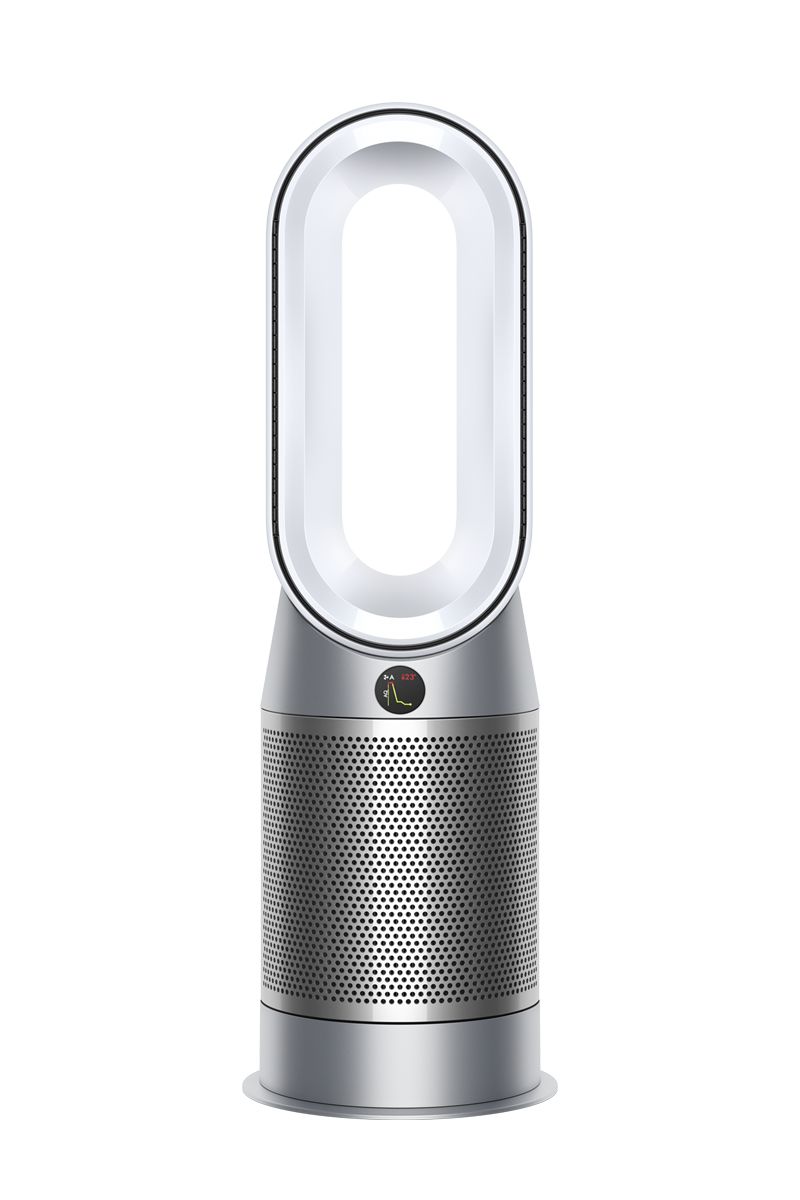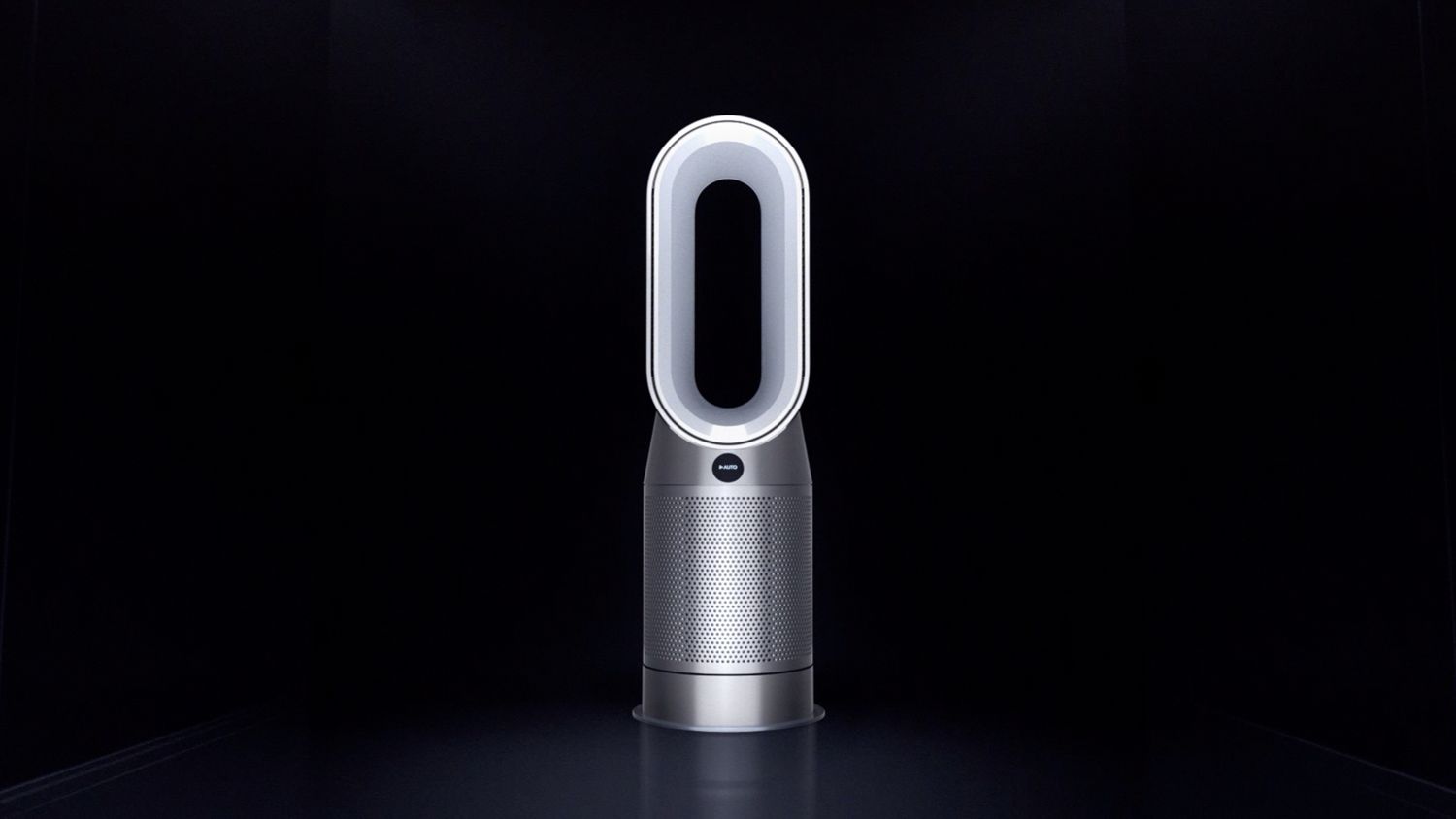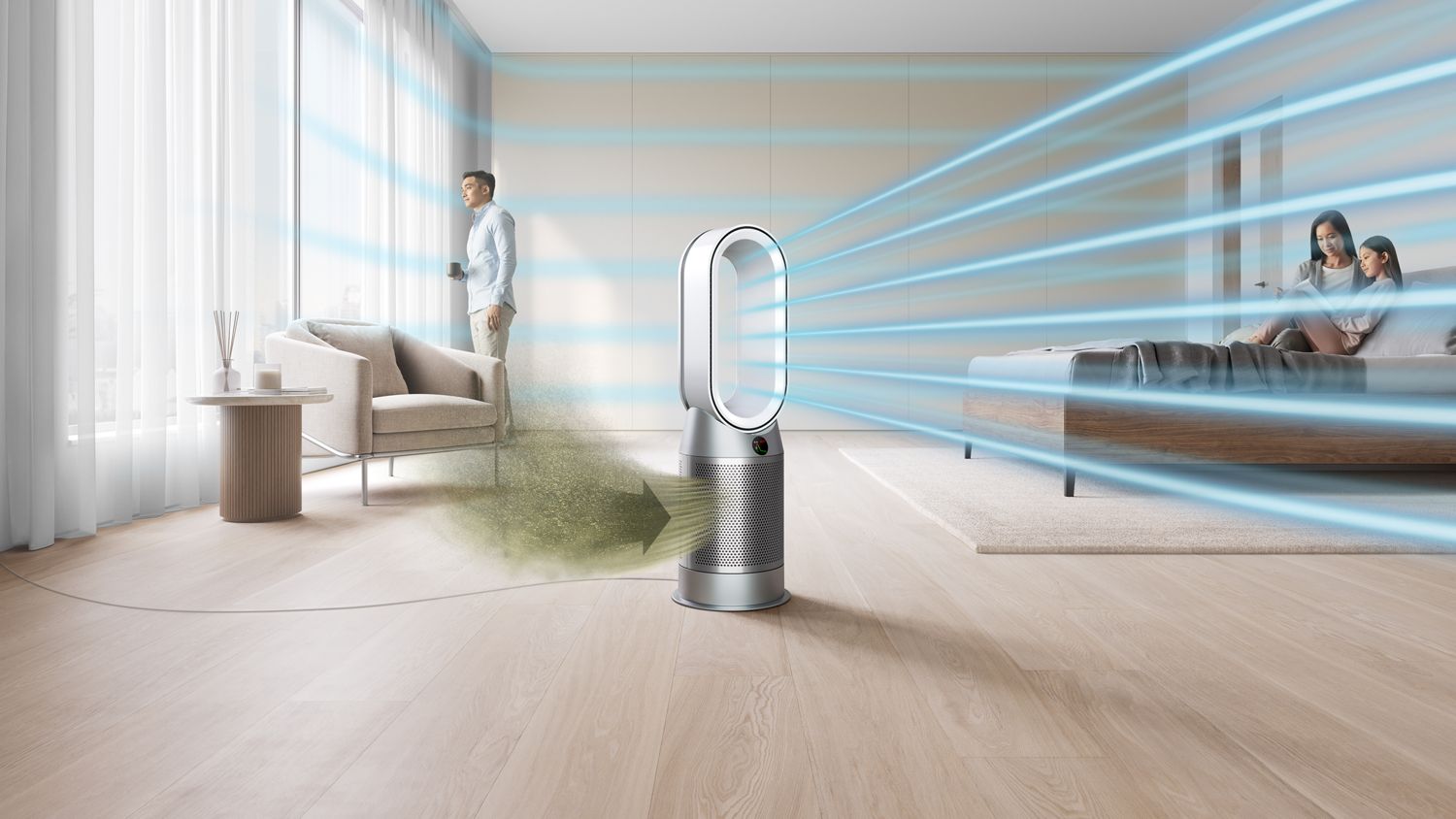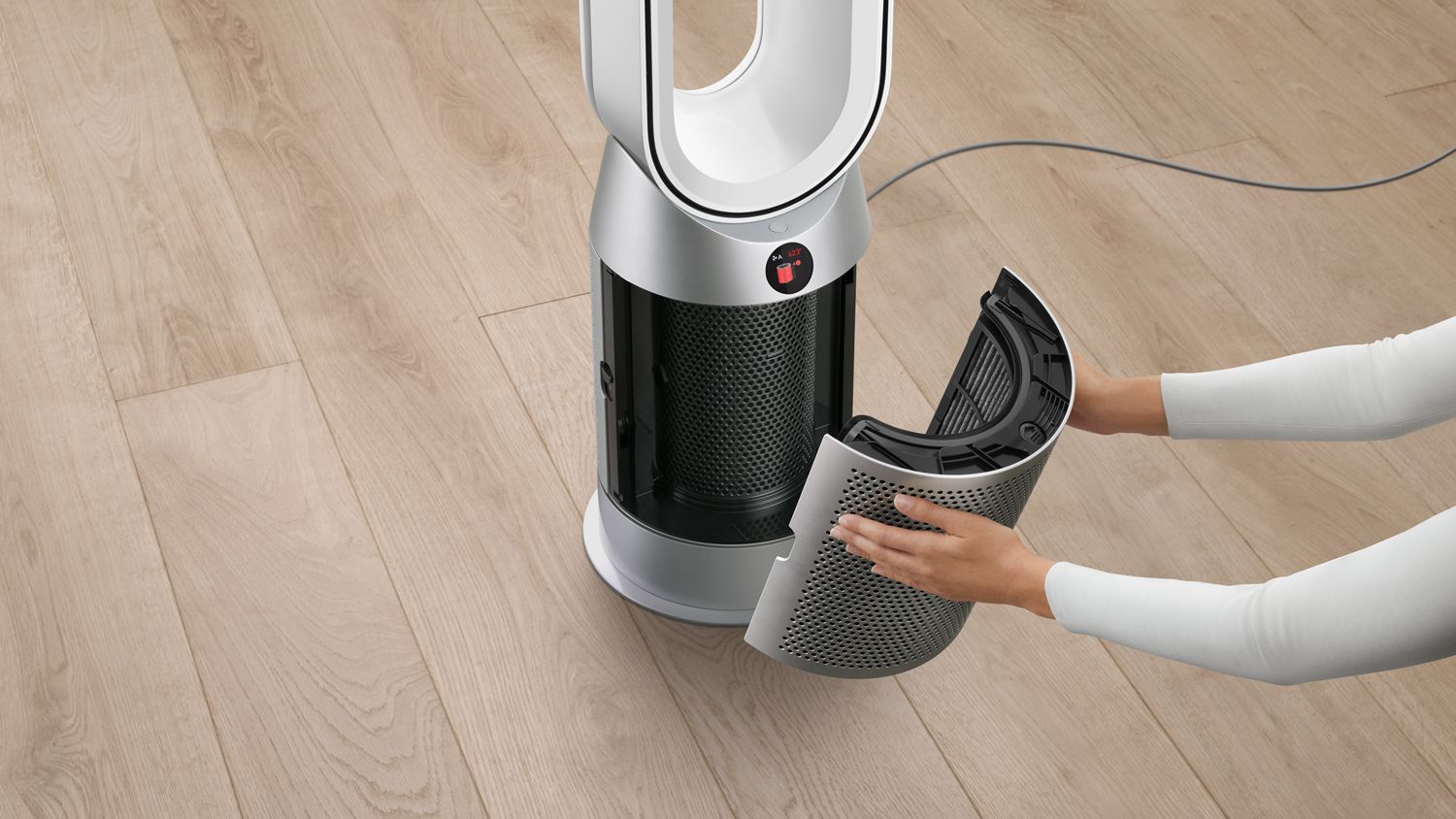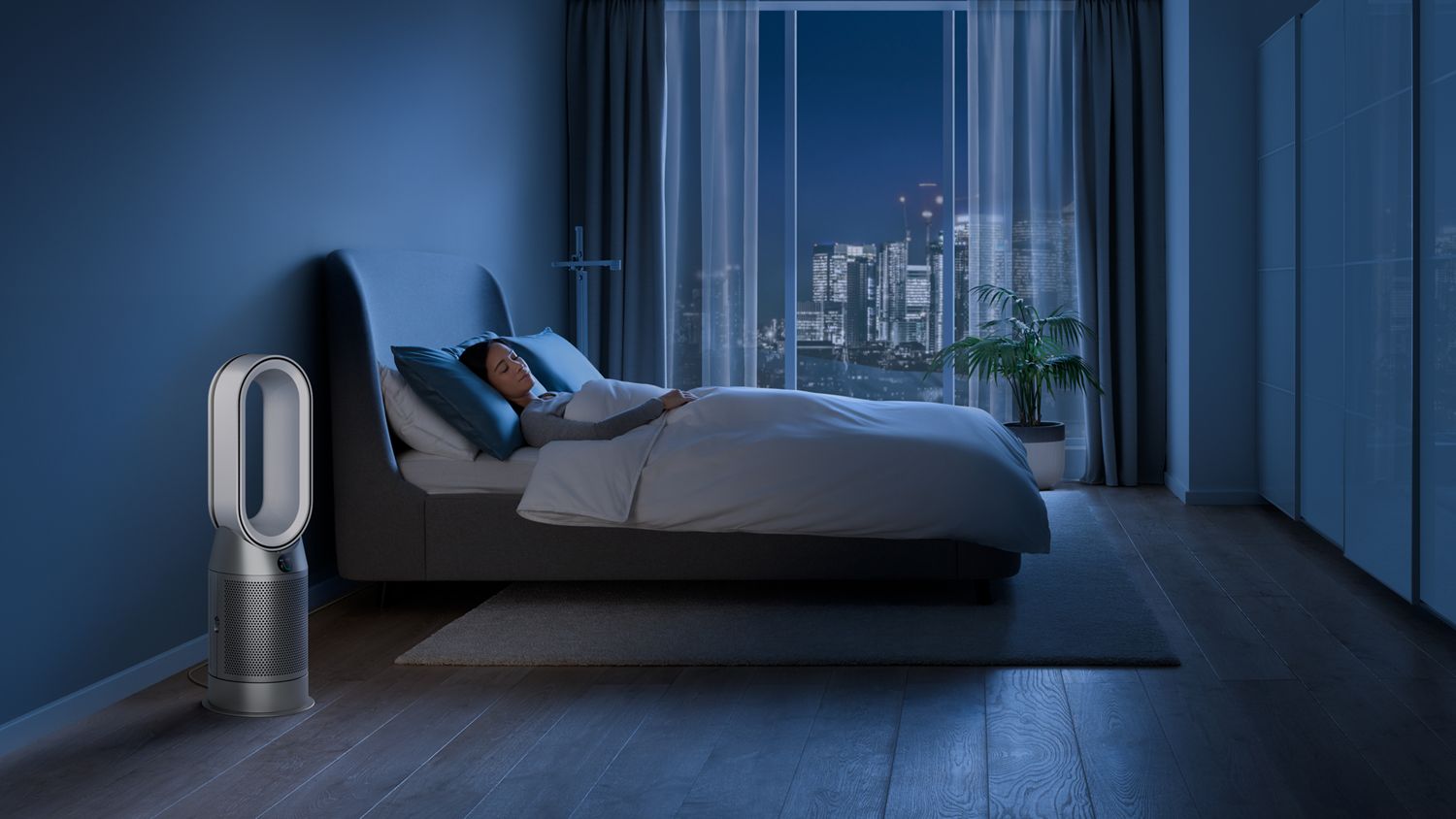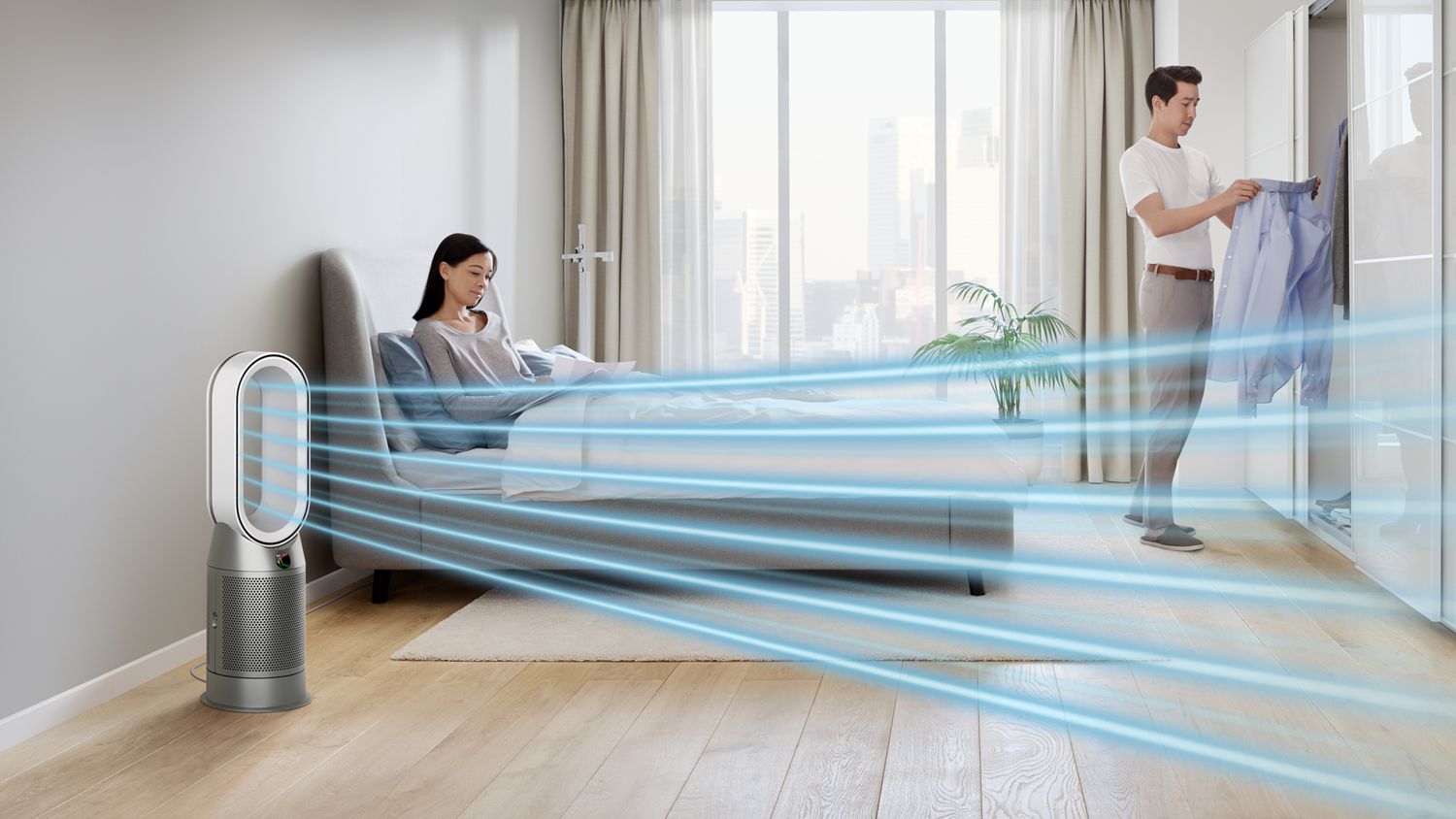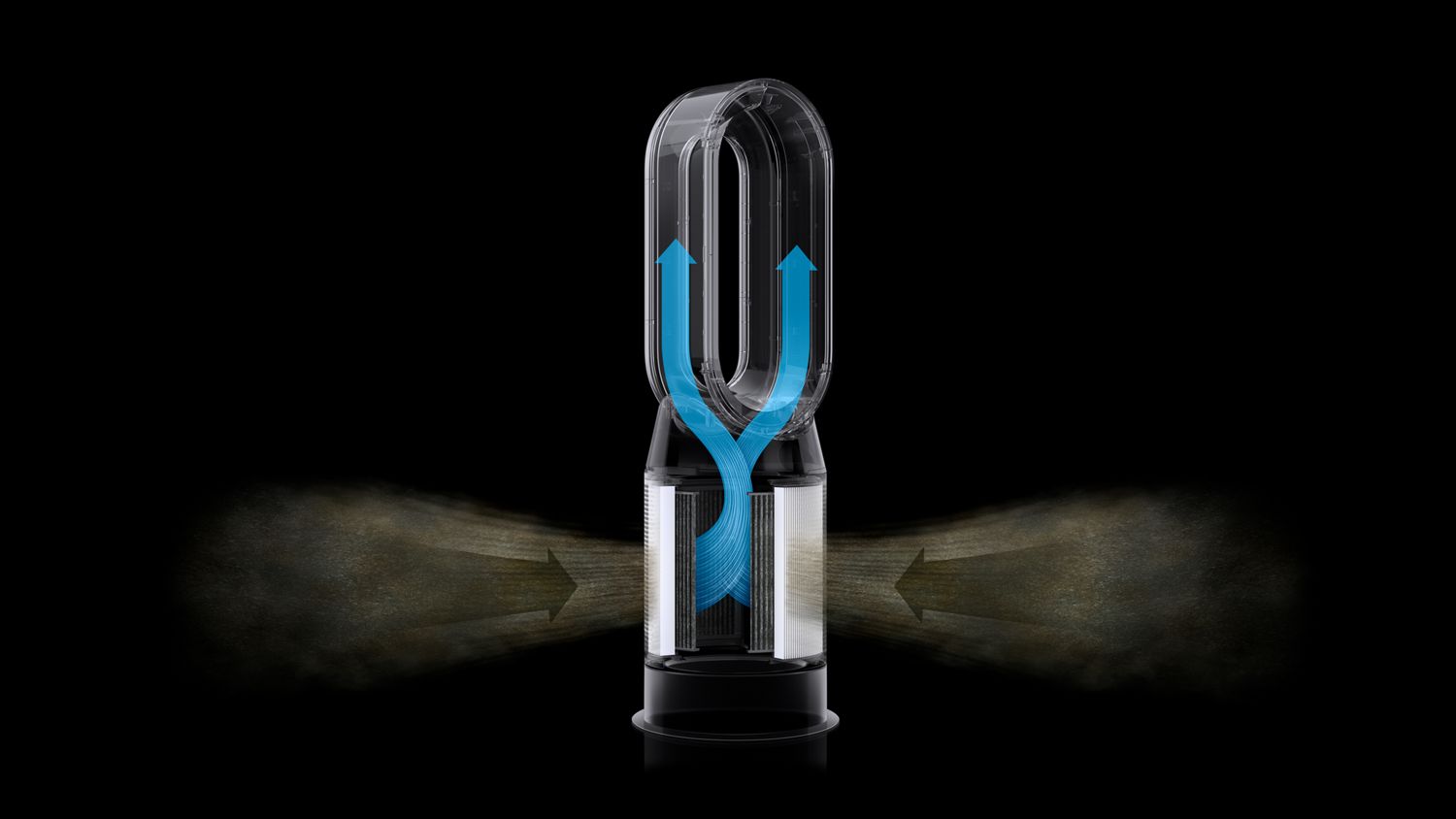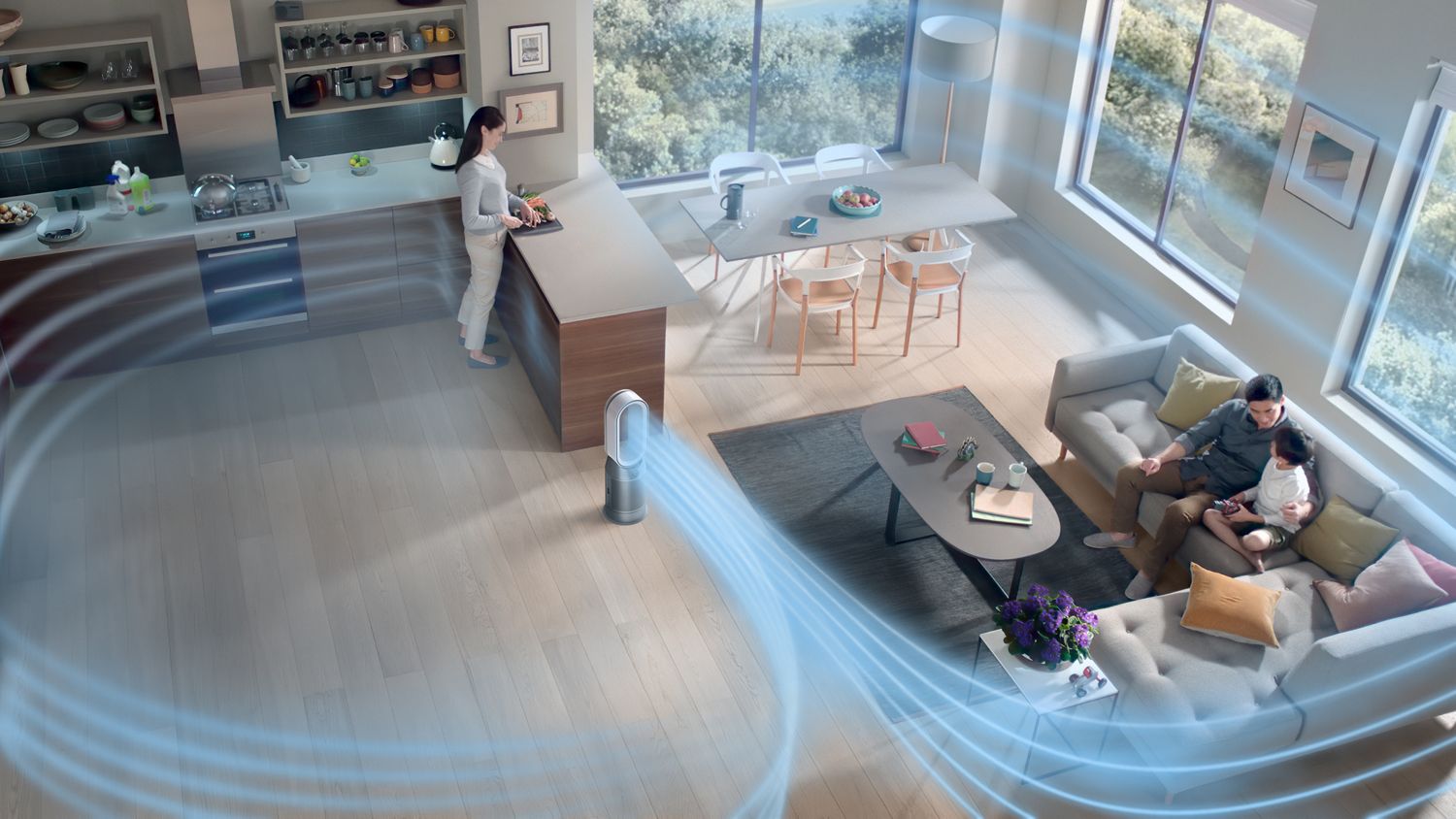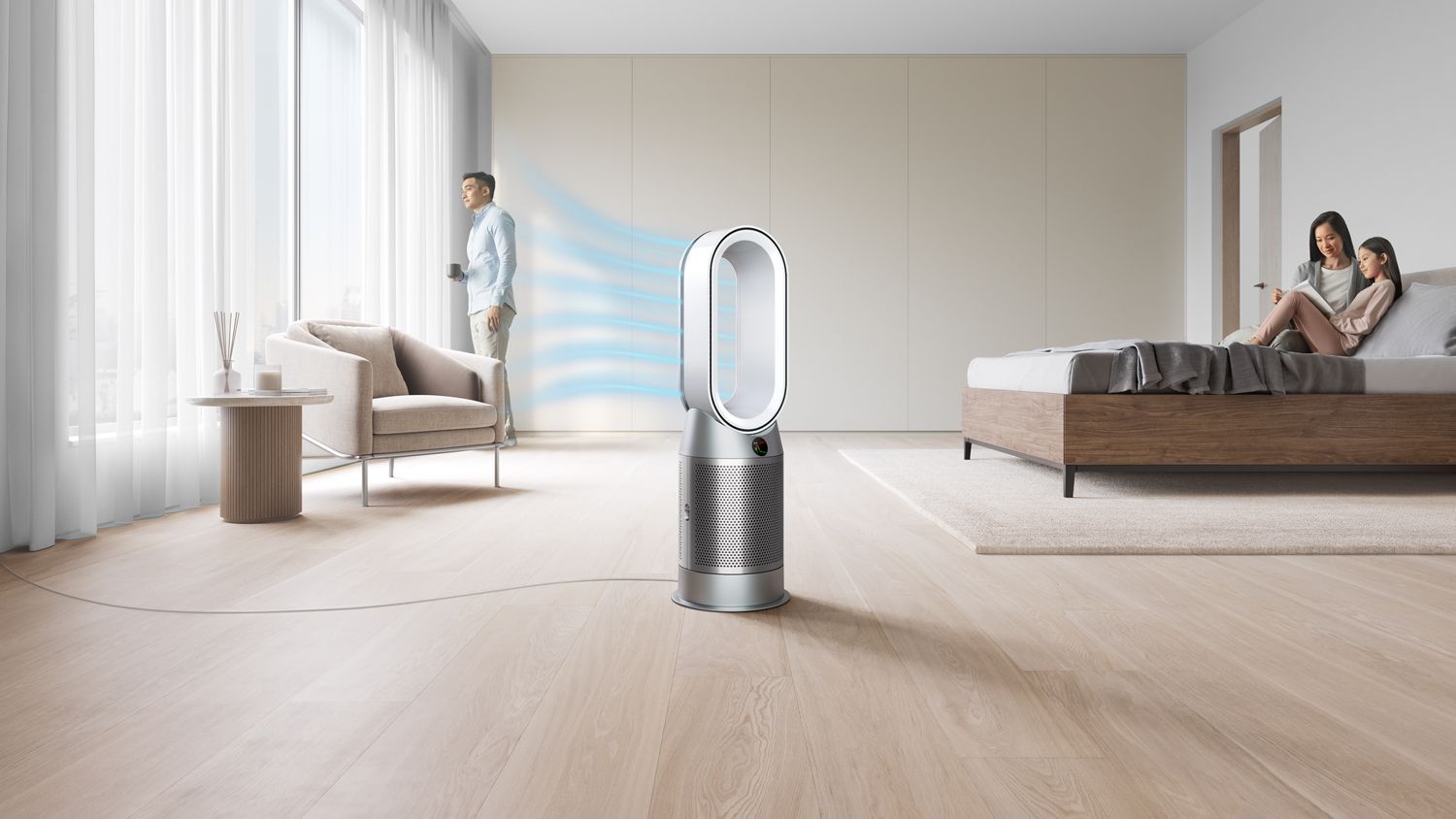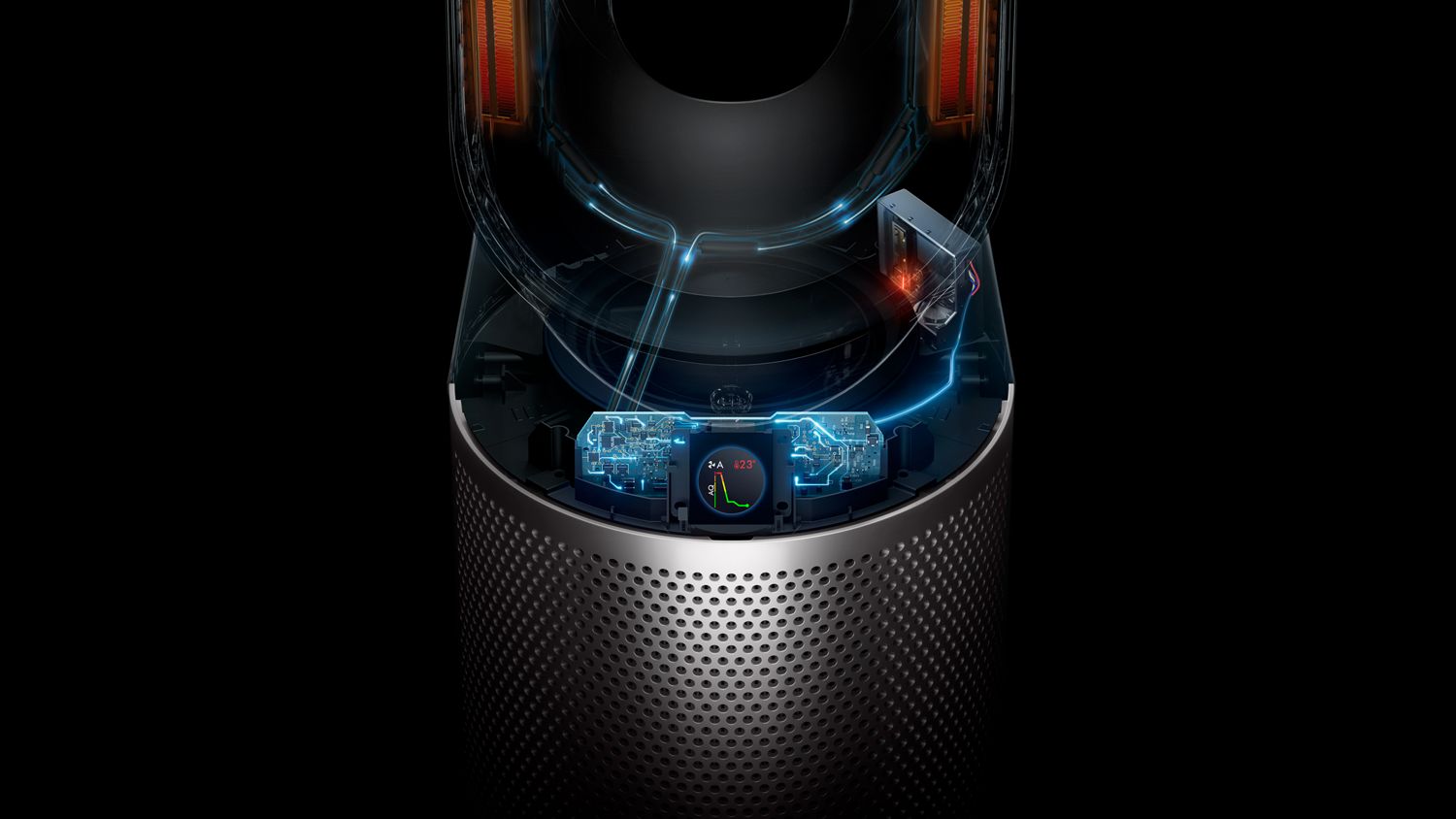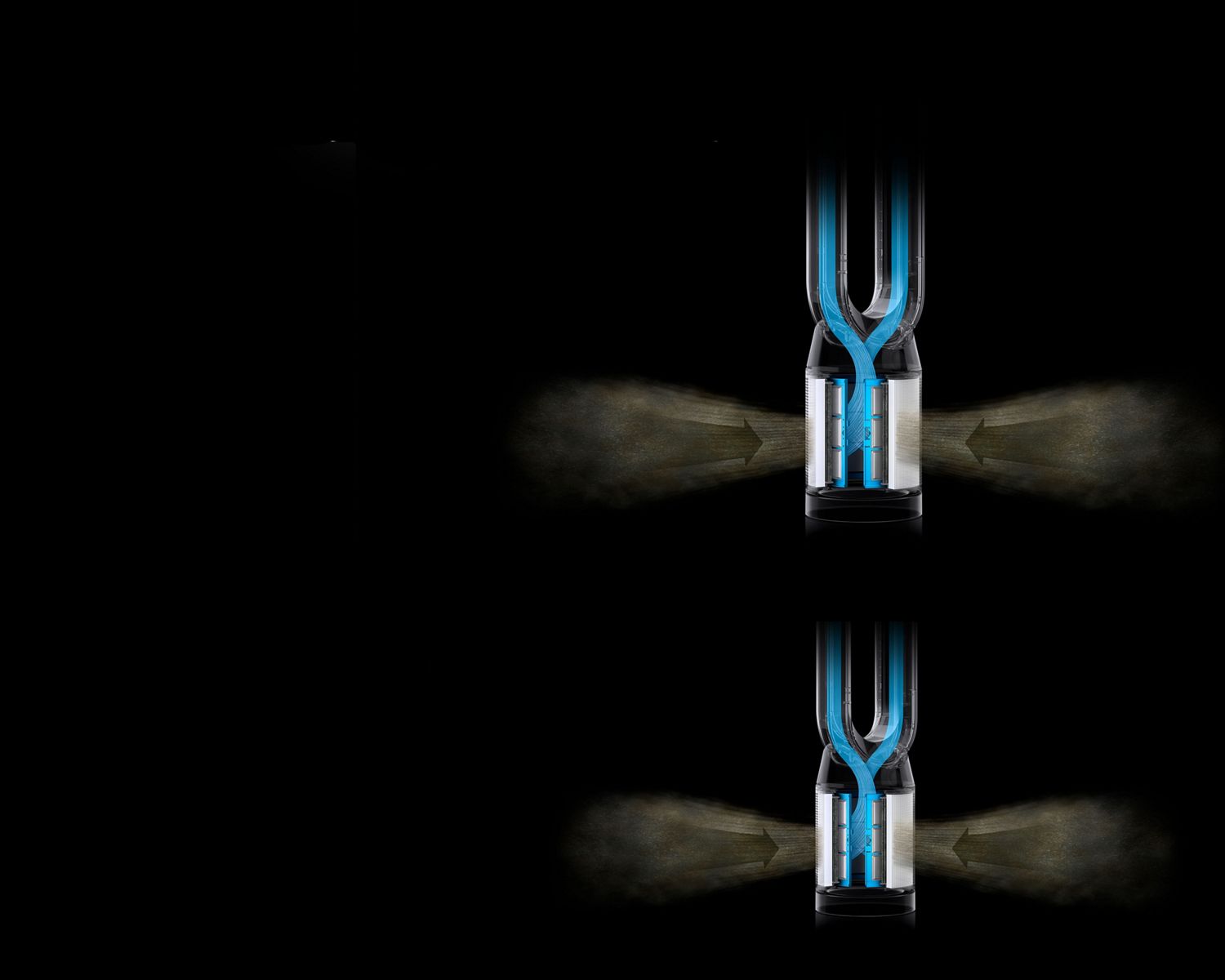Free next-day delivery
Dyson Purifier Hot+Cool Autoreact HP7A
Automatically senses and captures pollutants. Purifies and heats the whole room.
Dyson purifiers combine intelligent sensing with an advanced HEPA H13 filtration system that captures gases³ and 99.95% of particles as small as 0.1 microns.⁴ And only Dyson purifiers have powerful Air Multiplier™ technology to purify the whole room.¹
Dyson purifier heaters have built in thermostats which can save you up to 30% in running costs.⁷
Specifications
-
Weight
5.69 kg
-
Product diameter (skirt)
248 mm
-
Product diameter (shrouds)
220 mm
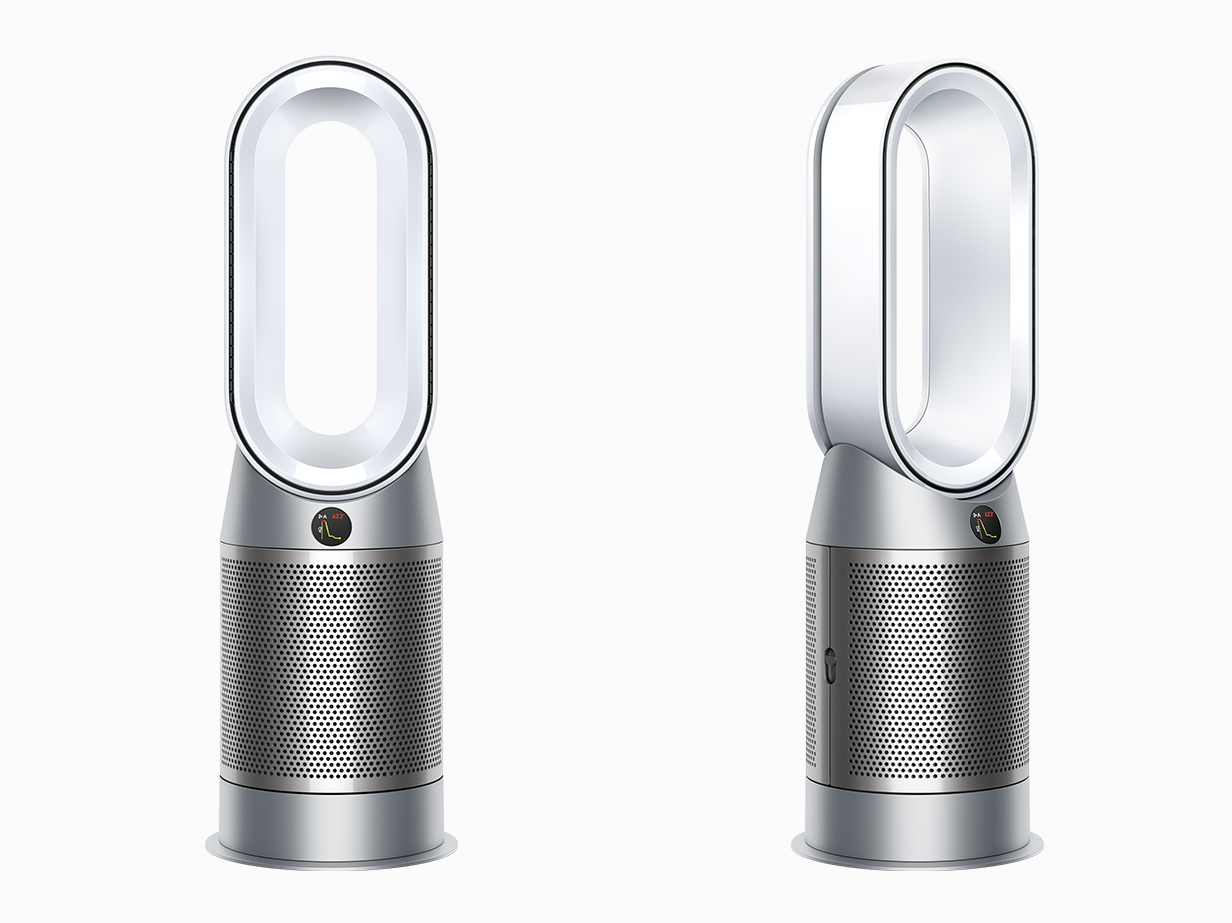
-
Height
764 mm
Reviews powered by Bazaarvoice
Dyson Purifier Hot+Cool™ HP7A Autoreact (White/Nickel)
Overall rating
In the box

Dyson Purifier Hot+Cool™ HP7A Autoreact (White/Nickel)
-
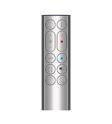
Remote control
Curved and magnetised to store neatly on the machine
-
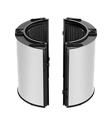
360° glass HEPA and activated carbon filter

Heats in winter. Cools in summer. Purifies all year round.
With long-range projection, it’s quick to heat the whole room evenly.² In warmer weather, its powerful stream of purified airflow cools you down.⁵
Machine highlights
-
Draught-free diffused mode
Diverts airflow through the back of the machine. To purify, without cooling you.
-
Night mode
For lighter sleepers. Monitors and purifies using the quietest settings, along with a dimmed display.
-
Oscillates up to 350°
Adjustable oscillation projects purified air around the whole room.¹
-
Easy filter care
Quick and easy to change. With automatic notifications on the LCD or MyDyson™ app.
Discover the pioneering technology inside
Frequently asked questions
Dyson engineers are perfectionists. Channelling our relentless dissatisfaction, we have re-engineered our latest purifiers to be fully sealed to HEPA H13 standard. Two stages of purification sit within a fully sealed filtration and airflow system to trap pollutants inside, preventing them from leaking back into the air you breathe.⁶
HEPA grades refer to filter efficiencies at certain particle sizes. HEPA H13 is a filter with a 99.95% removal efficiency of particles down to 0.1 microns per litre of air. This includes common pollutants such as allergens, bacteria, viruses, pollen and mould spores.
We recommend replacing the HEPA and Activated carbon filter roughly every 12 months, depending on how often you use it.⁷ That’s because over time filters can become clogged with pollutants and even let unpleasant odours back into the room. The machine will alert you when it’s time to change filters. A filter life reading can be found on the LCD screen. The catalytic filter never needs replacing.
Yes, Dyson purifiers capture wildfire smoke and other combustion pollutants.⁸
- 1 Dyson purifiers were challenged with airborne influenza A (H1N1 virus) and MS2 bacteriophage at an independent lab, using a 30 m3 chamber. After 60 minutes at maximum fan speed, the airborne concentration in the chamber was reduced up to 99.9 %. Real-life efficacy may vary.
- 2 Dyson purifiers were challenged with airborne SARS-CoV-2 (the virus that causes COVID-19) at an independent lab, using a 0.37 m3 chamber for 90 seconds. Dyson Purifiers were also challenged with Phi-6 bacteriophage (a surrogate to test SARS-CoV-2) at an independent lab, using a 30 m3 chamber. After 90 minutes at maximum fan speed, the airborne concentration in the chamber was reduced by 99.9 %. Real-life efficacy may vary.
- 3 Tested for filtration efficiency at 0.1 microns (EN1822, ISO29463)
- 4 Gas capture rates may vary.
- 5 In maximum setting. Tested for air projection, purification coverage in an 81m³ room and heating performance in a 35m³ room.
- 6 Particle challenge by DEHS oil specified in EN1822 within a chamber specified in ASTM F3150. Tested in Max Mode at IBR US, for whole machine efficiency above 99.95%.
- 7 After reaching target temperature and maintaining it. Tested in a 35 m³ chamber when using the hot air mode and the product setting temperature is 25 °C. Comparing with continuous operation with power consumption of 2050W. Real life results may vary depending on room insulation.
- 4 Particle challenge by DEHS oil specified in EN1822 within a chamber specified in ASTM F3150. Tested in Max Mode at IBR US, for whole machine efficiency above 99.95%.


